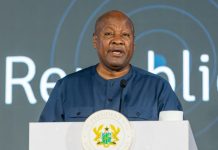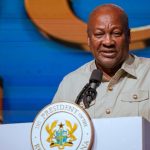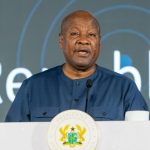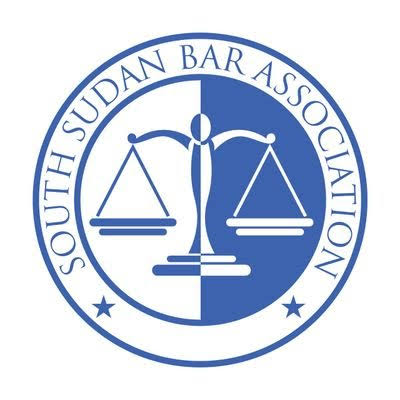Fidelity Bank has rejected claims that it seized US$25 million from the Minerals Income and Investment Fund (MIIF), a state institution managing national mineral royalties.
In a statement released on January 23, 2025, the bank clarified that the claims were baseless and misrepresented its dealings with MIIF.
“Fidelity Bank has not seized any funds from MIIF. The transaction in question relates to a foreign exchange pre-settlement agreement,” the statement read.

The controversy stemmed from reports linking Fidelity Bank to financial issues involving MIIF. The bank explained that the transaction was part of a standard arrangement where it advanced cedis to MIIF, with the expectation that MIIF would repay the equivalent amount in foreign currency within an agreed timeframe.
Fidelity Bank acknowledged delays by MIIF in meeting the repayment deadlines but confirmed that these delays were resolved through an agreed remediation process. “On specific occasions, MIIF did not meet the agreed timelines.
However, a remediation process was agreed upon, and the outstanding amounts were fully settled by December 2024,” the bank noted.
The statement emphasized that all transactions were conducted in accordance with agreed terms and regulatory standards.
MIIF has faced allegations of financial mismanagement under the leadership of its former CEO, Edward Nana Yaw Koranteng.
Reports suggested that MIIF underwrote an overdraft facility for Goldridge Limited, which defaulted on repayment, leading to the alleged US$25 million seizure by Fidelity Bank. Additionally, MIIF loaned US$94 million to Goldridge for gold trading, resulting in significant losses.
Further scrutiny has been placed on MIIF’s GH¢2.2 billion disbursed for various projects, including gold aggregation, AstroTurf pitches, and a mining museum, with unclear outcomes.
Despite generating US$1.02 billion in gold exports between August 2023 and September 2024, concerns have persisted over the fund’s financial management.
Fidelity Bank reiterated its commitment to transparency and supporting economic initiatives that address foreign exchange challenges.
As part of its broader role in Ghana’s financial ecosystem, Fidelity Bank reaffirmed its support for the Gold for Forex programme, an initiative aimed at stabilising the country’s foreign exchange market.
“We continue to support the Gold for Forex programme’s objectives and maintain our commitment to transparency and regulatory compliance,” the statement added.
The Gold for Forex programme, which involves the trade of gold to generate foreign currency, has been a key policy tool in efforts to reduce reliance on external reserves for imports.





















































![[FREE FREE MONEY] Predict and Win a Guaranteed GH¢200 From Us EVERY WEEK](https://wordpress.ghanatalksradio.com/wp-content/uploads/2022/02/Predict-and-Win-Final-09-03-2021-218x150.jpg)
![[Predict & Win – 8th/Oct.] WIN A Guaranteed ¢200 From Us This Week](https://wordpress.ghanatalksradio.com/wp-content/uploads/2021/10/maxresdefault-16-218x150.jpg)
![[Predict & Win – 2nd] WIN A Guaranteed ¢200 From Us This Week](https://wordpress.ghanatalksradio.com/wp-content/uploads/2021/09/maxresdefault-50-218x150.jpg)
![[Predict & Win – 25th] WIN A Guaranteed ¢200 From Us This Week](https://wordpress.ghanatalksradio.com/wp-content/uploads/2021/09/maxresdefault-36-218x150.jpg)
![[Predict & Win – 18th] WIN A Guaranteed ¢200 From Us This Week](https://wordpress.ghanatalksradio.com/wp-content/uploads/2021/09/maxresdefault-23-218x150.jpg)








![[National cathedral] See full list of churches that have contributed since 2018](https://wordpress.ghanatalksradio.com/wp-content/uploads/2020/09/Ghana-National-Cathedral-GhanaTalksRadio-100x70.jpg)



